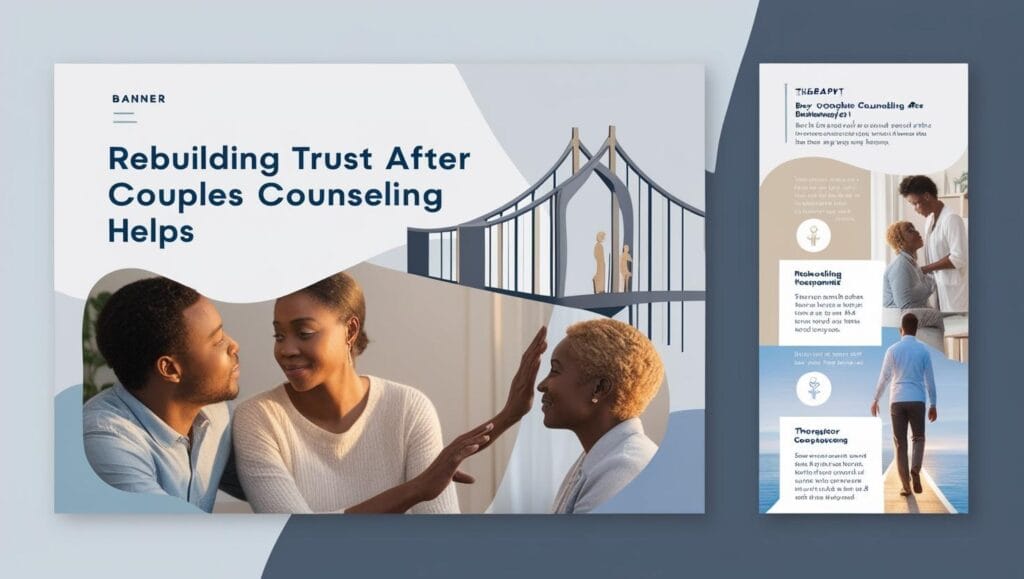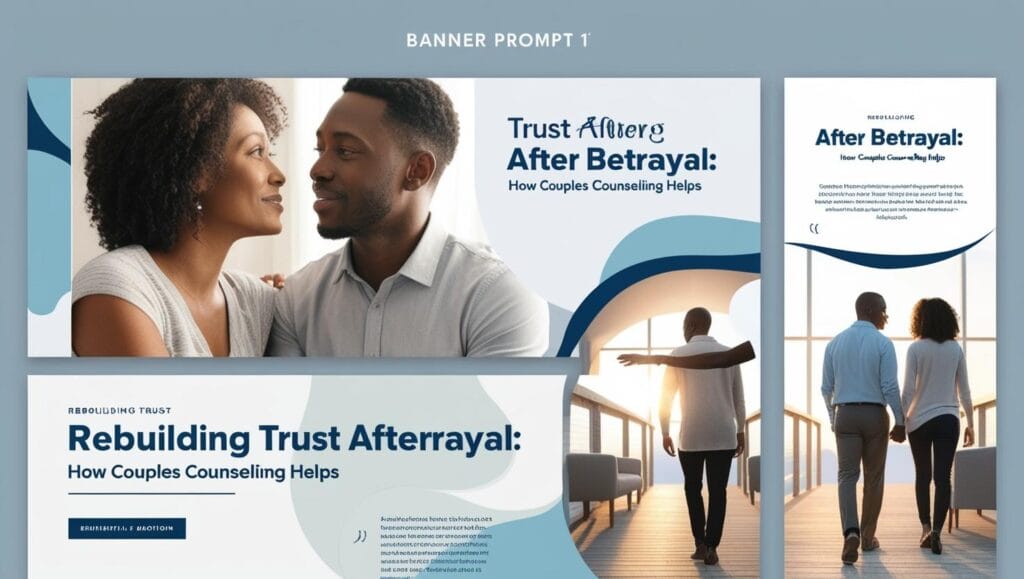Rebuilding Trust After Betrayal: How Couples Counseling Helps
Trust is the foundation of any strong relationship. When broken, especially through betrayal, rebuilding seems to be an insurmountable task. Yet, couples who have been facing such challenges often find hope and healing through couples counseling. This guide will explain how couples counseling provides tools, techniques, and a safe environment for partners to reconnect and rebuild trust post-betrayal.
Whether one is struggling with trust issues in one’s own relationship or seeking professional insights as a therapist, this post will deliver into the hands of readers actionable insights, clear steps, and answers to common questions about the process of rebuilding trust with the help of couples counseling.
Why Trust is Too Important to Ignore, Even After Betrayal
Trust is what cements relationships. It offers an avenue of closeness, safety, and contact between the parties. Its breach has implications rippling right through every level of a relationship. In fact, studies demonstrate that distrust causes a breakdown in communication, satisfaction goes down, and many couples separate or get divorced.
And yet, research also offers hope: couples who actively work through the betrayal with professional help are often emerging stronger, with deeper connections and better communication.

What does betrayal look like in a relationship?
Betrayal does not always come in the same package. Though common, infidelity is just one form; others include lies, financial secrecy, broken promises, emotional affairs, and even neglect. No matter the form, universal emotions are brought to the forefront: hurt, anger, and disbelief.
Couples counseling offers a structured and safe environment to process these emotions. Professional therapists are equipped to work through triggers and deeper issues, thus paving the way for healing and trust to begin.
How Couples Counseling Helps Rebuild Trust
Couples counseling is more than just a session of sitting in a room and airing frustrations. It’s a focused, guided approach to treading through complex emotions, finding patterns, and building ways to regain trust and communication.
- It creates a safe space for honest conversations.
One of the most difficult things about betrayal has to do with initiating the conversations that will help heal it. Counseling offers a neutral, non-judgmental space for couples to communicate feelings and concerns without the fear of increased conflict. The therapist mediates and helps both partners to feel heard and understood.
- Understanding the Root Causes of Betrayal
Most often, betrayal is a symptom of deeper issues that have not been resolved, such as unmet needs, poor communication patterns, or unresolved resentments. Couples counseling explores these dynamics to understand why the betrayal happened and how to avoid triggers in the future.

- Building Tools to Rebuild Trust
Rebuilding trust takes work on the part of both partners. Therapists will offer practical tools and strategies, including:
- Transparent communication – Establishing new ways of communicating honestly.
- Accountability exercises: things the offending partner can do to show renewed commitment.
- Trust-building activities: small daily actions that reinforce safety and reliability.
- Establishing Emotional Intimacy
Trust is directly connected with emotional intimacy. The therapists engage the couple in reconnecting through deeper levels, such as sharing vulnerabilities or active listening, which may spark the flame once more.
- Setting Boundaries
Boundaries create a roadmap of recovery. The counselors work with the couples to establish clear expectations about behaviors, communications, and personal space so that both partners feel respected and safe while healing.
- Professional Accountability
Having a professional to guide progress and hold both parties accountable ensures the work doesn’t end when the counseling session does. This structured accountability is key to maintaining momentum in rebuilding trust.

FAQs About Rebuilding Trust Through Couples Counseling
Q1. How long does it take to rebuild trust after a betrayal?
Each couple is on a different timeline, and it really depends on certain factors: how bad the betrayal was, how willing both partners are to engage in the process, and individual circumstances. Some couples may show progress in mere months, while others may take years to fully restore trust. Consistency, effort, and professional guidance make a big difference in the overall timeline.
Q2. Can a relationship ever recover after a betrayal?
Yes, many relationships can and do recover from betrayal when both partners are committed to the process. Couples counseling provides tools and strategies to address the root causes of betrayal, repair emotional damage, and build a stronger, healthier connection moving forward.
Q3. Will couples counseling work if my partner refuses to take responsibility?
Successful counseling is both partners putting in effort; should one refuse to take responsibility, it might go slower or just be limited. However, individual work by the therapists with the partners can also provoke accountability and hence understand the reasons for not feeling responsible.
Q4. Suppose the trust is broken once again after commencing counseling?
While setbacks can feel discouraging, they are not uncommon. Therapists help couples address recurring breaches of trust, identify patterns or challenges, and refine strategies. Ongoing counseling ensures that small setbacks don’t derail progress entirely.
Q5. What if I’m unsure the relationship is worth saving?
Couples counseling is not just about saving relationships; it’s about clarity. Counseling helps the couple decide whether to move forward together or in different directions with better mutual understanding and healing. The Role of Individual Therapy in Rebuilding Trust Where couples counseling is important, individual therapy complements the work that sometimes couples cannot do in those joint sessions. It is time for deeper exploration of personal triggers, emotions, and behaviors.
For example:
- The betrayed partner may process feelings of anger, grief, or fear more freely.
- The partner that offended can address the latent issues, including addictions, insecurities, or unresolved trauma that contributed to the betrayal.
Next Steps on the Path to Trust and Healing
Rebuilding trust after a betrayal is not an easy task, but you can rebuild it. Couples counseling offers the framework, tools, and professional guidance that will lead you through each step along the way. Whether you are a partner who betrayed, a partner working to regain your loved one’s trust, or a therapist specializing in couples, the road to trust requires patience, commitment, and effort.
If you need customized advice, consulting with a licensed couples counselor will be a prudent first step.
Let the healing process take its due time-it may be slow, but most definitely rewarding to the couples involved.
Where to Go From Here
Take it as an invitation to the reader who either wants to start or further his or her healing process. To do so, reach out to licensed couples therapists in your area, or find the relationship specialist that best fits your needs through online platforms like Regain and Talk space.
Rebuilding trust after betrayal is not easy, but it is so rewarding with the right tools and help. You can face the challenges together, learn from the experience, and build a stronger, more connected relationship.

